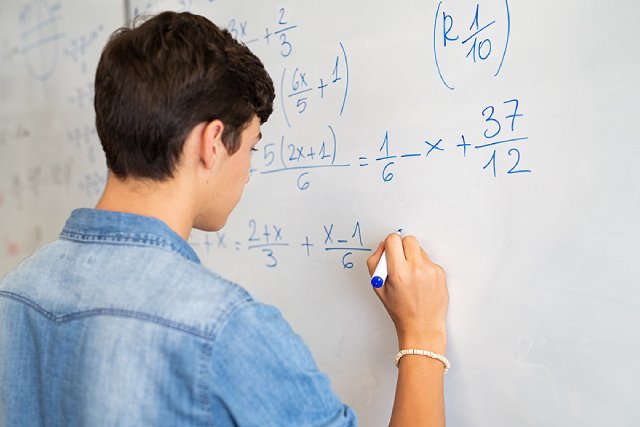How Your Child Can Apply Math And Science In Everyday Life
Many children often view Mathematics and Science as difficult and thus terrible parts of their school experience. However, the principles children learn from these subjects are helpful in real life.
Contrary to popular belief, learning these two subjects is not just about finishing school and earning a diploma. They can be used in many different contexts throughout one’s life and should, therefore, not be boxed in the realm of academics.
Suppose your child is currently struggling with Math and Science. In that case, it is highly advised that you sign them up for O-Level online tuition and encourage them to develop a passion for the subject by incorporating its lessons into their day-to-day life.
To help you, here are some of the most basic but essential applications of mathematics and science in the real world.
1. Making plans based on weather prediction
The weather plays a significant role in our lives and affects many aspects of our day, from our choice of attire to our plans. While no one can honestly know how the weather will turn out—not even the professional meteorologists behind the weather reports—we can still gauge the likelihood of certain phenomena such as rain, snow, hail, and more via probability.
Knowledge of probability can help your child in many aspects of their life, such as planning their activities around the weather. For instance, if the forecast says there is a 60% chance of rain, the present weather conditions are such that it rained 60 out of 100 days with similar situations.
A deeper understanding of these numbers in reports can lead one to err on the side of caution and choose rain-proof footwear or take an umbrella to school. Weekly forecasts could also help them plan more effectively for their free days.
For example, suppose there is a 60% chance it will rain. In that case, it makes them consider the probability that it will happen within a particular period, how heavy the rain would be, and how it can affect their chances of getting to the destination in time. It may even help them make better decisions, such as staying at home and playing online with them instead.
2. Staying safe when using chemicals for chores
As children become more accustomed to household chores, they will use more chemical tools to achieve their cleaning duties. For instance, bleach and vinegar are two of the most common household chemicals used for disinfecting surfaces, removing stains, and getting rid of grime.
Applying their knowledge in O Level Chemistry lets them better decide when and where to use these household chemicals while staying safe properly. Most people do not know this fact, but bleach and vinegar, when mixed, can lead to serious harm as they may create chlorine gas.
The former typically used for cleaning consists of sodium hypochlorite diluted to 3-8%, while the latter is a diluted form of acetic acid. If the two are combined (specifically, sodium hypochlorite and any other kind of acid), it creates chlorine gas, which is potentially lethal.
Thus, knowing the chemical components of these everyday items how they react with other compounds ensures your child will stay out of harm’s way.
3. Proper financial management
Most children, especially those beyond 12, will essentially have their allowance for their daily necessities at school. At this age, however, they will have also learned to save to finance their personal goals.
O-Level Maths exposes your child to problems in real-world contexts that help them pick up knowledge beneficial to proper financial management, such as choosing the best banks that offer the highest interest returns for student accounts. It also allows children to calculate simple and compound interest to decide which bank is best to deposit their money to save more in the long run.
All in all, the topics covered in O-level Maths not only prepare them for future applications in their careers but also for managing their money wisely today and down the line, an essential ability that will pay dividends in making them financially independent sooner than later.
Conclusion
Math and Science are undoubtedly practical subjects with various everyday applications. For a growing child, this fact may not register quite as quickly, but as we have covered above, there are many instances where one’s learning in Math and Science concepts comes in handy in day-to-day activities.
One of the best ways to help your child foster a love for Math and Science is to sign them up for maths tuition in Toa Payoh or anywhere in Singapore. Hiring a tutor who guides your child every step of the way and mentors them through fun and relevant methodologies is among the most effective ways to spark your child’s interest in any subject.
For the best and most reliable secondary maths tuition in Singapore, Glenn Lee Learning Centre is the tuition centre you can count on! Glenn Lee, the centre’s founder and head tutor, is a seasoned Mathematics and Science specialist who has helped numerous students improve their academic grades and study habits.
He believes the best way to motivate children to study is to facilitate a positive and kind learning environment. Hence, you can be sure that your child will have an enjoyable and stress-free learning experience at Glenn Lee Learning Centre. For more information about our tuition classes, feel free to message us at glennleelearningcentre@gmail.com or call us at +6590012298.

